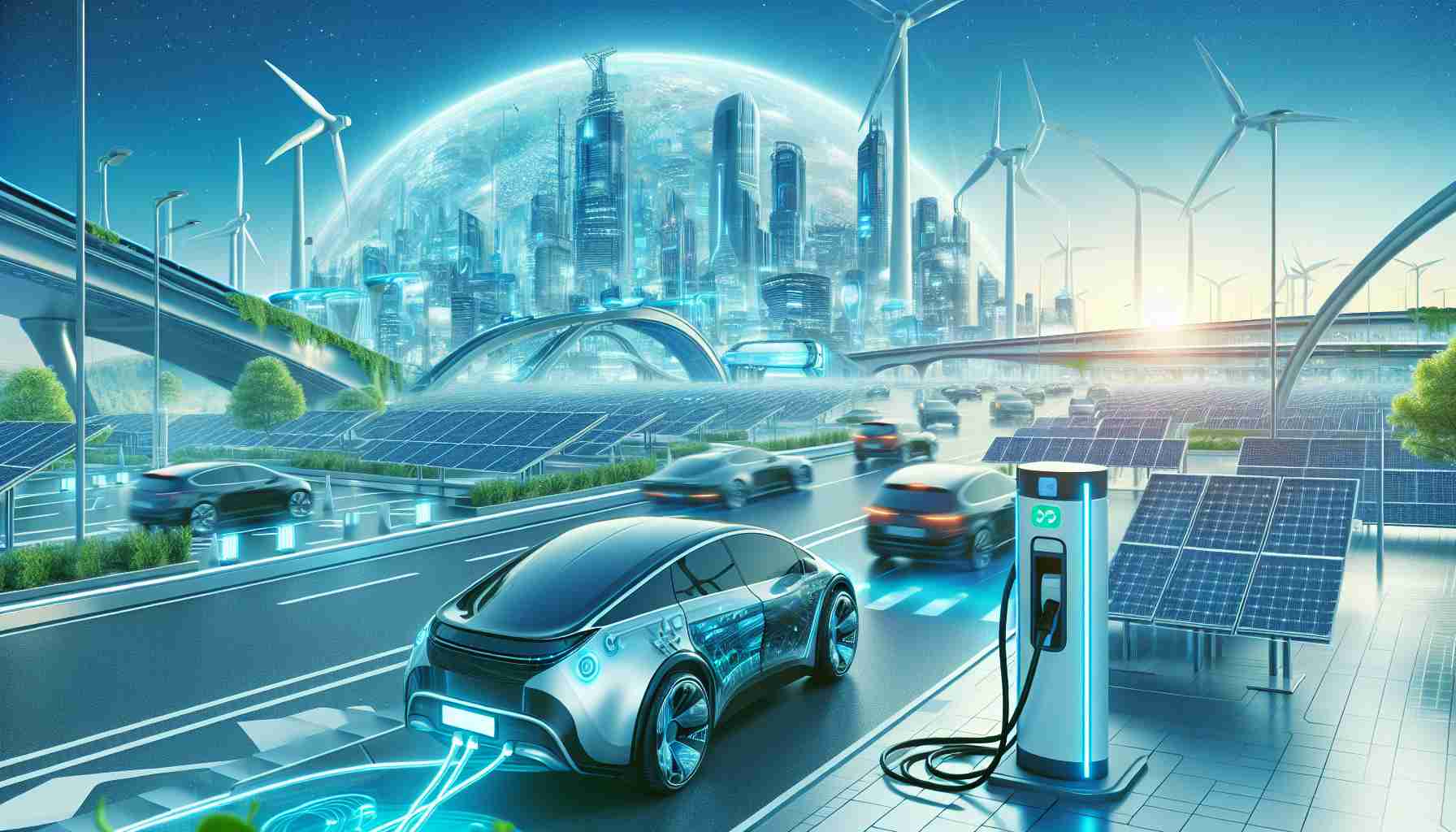BT Group’s Bold Move Towards a Greener Fleet
In a transformative push for sustainability, BT Group, a leading British telecom giant, is rapidly electrifying its vehicle fleet, with plans to integrate 3,500 electric vehicles (EVs) within the next two years. This initiative will swell its total to 8,000 EVs, making it the owner of the largest electric fleet in the UK.
With a formidable fleet of over 27,000 vehicles, BT Group is making a significant mark in the UK’s commercial transport sector. The company has set an ambitious target of achieving net zero emissions by 2031, striving for a complete transition to electric vehicles in just five years. To ensure operational efficiency, they are partnering with renowned manufacturers such as Ford, Stellantis, Toyota, and Renault.
BT Group is aligned with governmental efforts, supporting the proposed 2030 ban on internal combustion engines and benefiting from a £120 million fund aimed at promoting zero-emission vans. This support signifies a collective drive towards more sustainable transport solutions across the nation.
By leading the charge in the commercial electric vehicle market, BT Group not only showcases its commitment to reducing carbon emissions but also sets a blueprint for businesses worldwide. This model paves the way for a greener economy, potentially driving job growth in renewable energy sectors as demand for electric vehicles soars. As the company embarks on this electrifying journey, its impact on environmental policies and public consciousness will be profound.
The Broader Impact of Electrifying Transportation
BT Group’s initiative to electrify its fleet is not merely a corporate shift; it represents a paradigm shift in how businesses approach sustainability. The implications of this transformation extend far beyond the immediate environment of the UK, influencing societal norms around transportation and energy consumption. As corporate leaders like BT Group adopt electric vehicles (EVs), they challenge competitors to re-evaluate their strategies and contributions to climate change.
From a cultural standpoint, this shift fosters a greater acceptance and preference for sustainable choices among consumers. As more companies pledge to go green, it nurtures a consumer base that values eco-friendliness, leading to increased demand for EVs and the infrastructure that supports them. Public sentiment is crucial—companies taking bold steps toward sustainability are likely to attract socially conscious investment and customer loyalty.
Regarding the global economy, BT Group’s commitment can stimulate job creation in both the manufacturing of electric vehicles and the burgeoning fields of renewable energy and battery technology. As the UK leads the way, other nations may follow suit, creating a ripple effect that encourages international collaboration on green technologies.
On the environmental front, this move helps curb air pollution and greenhouse gas emissions, aligning with global climate goals. The urgency of addressing climate change makes such initiatives not just beneficial but essential for the planet’s future. As we look ahead, the transition to electric fleets by major corporations may well indicate the broader trend of sustainability becoming integral to corporate identity and strategy.
BT Group’s Electric Fleet Revolution: A Game Changer for Sustainability
BT Group’s Bold Move Towards a Greener Fleet
In a transformative push for sustainability, BT Group, a leading British telecom giant, is rapidly electrifying its vehicle fleet, with plans to integrate 3,500 electric vehicles (EVs) within the next two years. This initiative will swell its total to 8,000 EVs, making it the owner of the largest electric fleet in the UK.
With a formidable fleet of over 27,000 vehicles, BT Group is making a significant mark in the UK’s commercial transport sector. The company has set an ambitious target of achieving net zero emissions by 2031, striving for a complete transition to electric vehicles in just five years. To ensure operational efficiency, they are partnering with renowned manufacturers such as Ford, Stellantis, Toyota, and Renault.
Key Features of BT Group’s Electrification Initiative
1. Fleet Size and Composition: BT Group operates over 27,000 vehicles, targeting an increase in EVs to 8,000 by 2025.
2. Partnerships with Leading Automakers: Collaborations with major manufacturers such as Ford and Renault will help expedite the transition and provide access to the latest electric vehicle technologies.
3. Support for Government Initiatives: BT Group is backing the UK government’s aim to ban the sale of new internal combustion engine vehicles by 2030, contributing to nationwide sustainability efforts.
How BT Group is Making a Difference
– Sustainability Leadership: BT Group’s substantial commitment to electrification reinforces its position as a leader in the utilities sector, with a strong focus on reducing greenhouse gas emissions.
– Economic Impact: This shift to electric vehicles not only affects the company but is also poised to stimulate the economy by creating jobs within the renewable energy sector, as electric vehicle adoption necessitates infrastructure development, such as charging stations.
Pros and Cons of BT Group’s Electrification Strategy
Pros
– Environmental Benefits: Significantly lessens carbon emissions, contributing to a greener planet.
– Compliance with Regulations: Aligns with government policies aimed at reducing pollution and promoting renewable energy.
– Strengthened Brand Image: Enhanced reputation for corporate responsibility, appealing to environmentally conscious consumers and businesses.
Cons
– High Initial Investment: Transitioning to an electric fleet involves substantial upfront costs for new vehicles and infrastructure.
– Dependency on Technology: Relying heavily on EV technology could pose challenges if suppliers face disruptions or if the technology evolves rapidly.
Cost Analysis and Market Insights
While transitioning to an electric fleet requires considerable investment, long-term savings on fuel and maintenance could offset initial costs. The electric vehicle market is projected to grow significantly, with a forecasted CAGR of over 20% through 2027. BT Group’s proactive approach positions it favorably within this burgeoning market.
Innovations and Future Predictions
BT Group’s electrification strategy not only emphasizes current sustainability practices but also paves the way for innovations such as:
– Smart Charging Solutions: Development of on-site charging technologies that maximize efficiency and reduce costs.
– Integration with Renewable Energy: Potentially harnessing solar or wind energy for powering charging stations, further decreasing the carbon footprint.
Conclusion
By leading the charge in the commercial electric vehicle market, BT Group not only showcases its commitment to reducing carbon emissions but also sets a blueprint for businesses worldwide. This model paves the way for a greener economy, potentially driving job growth in renewable energy sectors as demand for electric vehicles soars. As the company embarks on this electrifying journey, its impact on environmental policies and public consciousness will be profound.
For more information on sustainable initiatives, explore more at BT Group.













